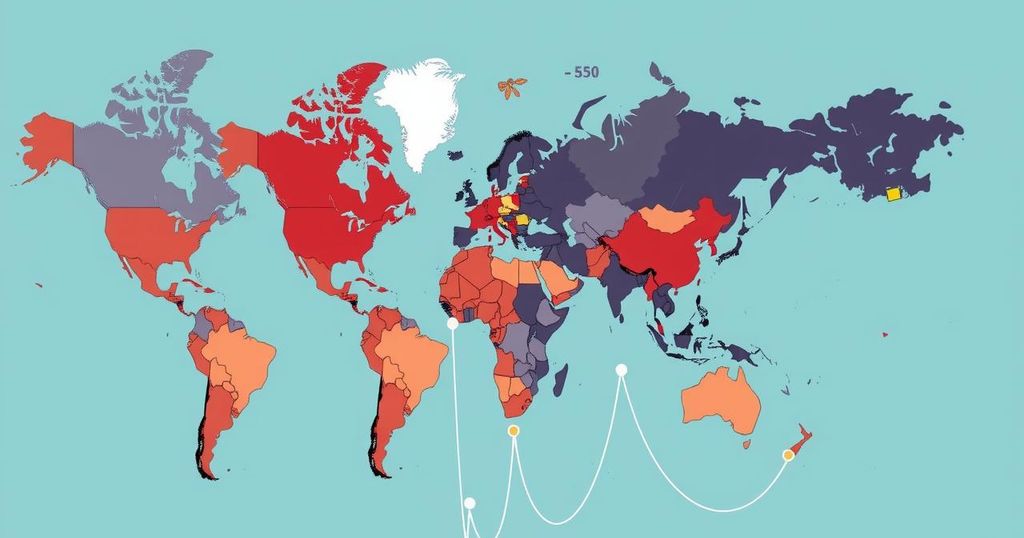World news
AFRICA, AFRICAN NATIONAL CONGRESS, AP, ASIA, BHARATIYA JANATA PARTY, BOTSWANA, BRITAIN, CAS MUDDE, DEMOCRACY, ELECTIONS, EUROPE, EUROPE/ASIA, FRANCE, GEORGIA, GHANA, GOVERNMENT, INDIA, JAPAN, LONDON, MIDDLE EAST, MOZAMBIQUE, NA, NAMIBIA, NORTH AMERICA, OPPOSITION, POLITICS, POPULISM, ROB FORD, ROMANIA, RUSSIA, SENEGAL, SOUTH AFRICA, SOUTH AMERICA, SOUTH KOREA, SWAPO, UKRAINE, UNITED KINGDOM, UNITED STATES, UNIVERSITY OF MANCHESTER, URUGUAY, YAMANDÚ ORSI
Ethan Kim
0 Comments
2024 Elections: A Year of Political Turbulence and Voter Discontent
In 2024, around 70 countries faced mass voter dissatisfaction leading to significant defeats for incumbents. Economic turmoil and global instabilities spurred the electorate to seek change, often turning to populist candidates. The results revealed a shift towards the far right and heightened concerns regarding the future stability of democratic systems and governance.
The year 2024 witnessed a dramatic shift in political sentiments as voters across approximately 70 countries expressed their discontent towards incumbents, signaling a wave of anti-establishment sentiment. Economic challenges, heightened by a series of global crises including the pandemic and geopolitical conflicts, played a significant role in influencing voter behavior. Consequently, many long-standing governments, particularly in democracies like India, South Africa, and the United Kingdom, experienced substantial electoral defeats. As traditional parties faced a decline in support, voters increasingly turned towards populist and far-right candidates. Analysts emphasize that the electorate’s weary response reflects deeper issues with political satisfaction and governance, fueling concerns about the future of democracy worldwide.
The 2024 elections were unprecedented in scale and impact, as about half of the world’s population engaged in democratic processes. The elections were not limited to traditional battlegrounds but spanned various continents, revealing a trend of voter discontent primarily driven by economic hardships and social disruptions stemming from the ongoing consequences of the COVID-19 pandemic and global conflict, notably exacerbated by the Russia-Ukraine war. The results indicated a notable shift away from established political parties, with many incumbents dispatched from power, raising alarms regarding the resilience of democratic systems and the rise of far-right movements.
The electoral outcomes of 2024 have underscored a significant backlash against incumbents globally, with widespread implications for the political landscape. The combination of economic distress, political instability, and dissatisfaction with governance indicates a crucial moment for democratic institutions. As voters increasingly gravitate towards alternative parties and candidates, the future of democracy appears precarious. Political analysts warn that unless the core issues leading to this dissatisfaction are addressed, further turbulence can be anticipated in the political arena.
Original Source: www.seattletimes.com




Post Comment